leslie_cooper_906.png

--Written by Melissa Milton
On Mardi Gras morning forty years ago, a young woman visiting New Orleans from Natchez was festooning herself for the day at a friend’s house when she discovered WWOZ.
“I heard an early jazz tune, and I thought to myself, is THAT the radio? What is this? This is the music my dad plays, and you never hear that on the radio. Never.”
And so began Leslie Cooper’s love affair with the station where she just celebrated her ten-year anniversary as host of the Tuesday morning traditional jazz show. “I’ve had WWOZ tattooed on my heart for a very long time," she says.
Leslie’s journey began in Mississippi where she grew up in a musical family. Her mother was a vocalist who performed on weekends with Leslie’s stepfather, a bandleader who played reeds.
“I’ll never forget the first time I heard music that didn’t end in ‘Amen.' Dad had a gig, and it was technically their honeymoon, they had been working since they had gotten married. So they bring me to New Orleans. We go to Pres Hall, and Dad asked Miss Sandra (Jaffe, co-founder of Preservation Hall) if she could watch me for a little while. They wanted to go have a drink. I met and discovered Sweet Emma Barrett that night. I sat on the floor, I was eight years old and a little pixie, and I was even with her leg, with her garter with the bangle.”
“He introduced me to so much music, my dad did. I learned everything of theirs just by sitting in on the gigs. I learned every note, every song she sang, every note, just by watching. I’m not a musician, I’m a vocalist.”
“I was a weird kid. In high school I was obsessed with Fats Waller, with Glen Miller and Benny Goodman and Ethyl Waters and Bessie Smith. I was a goodie two shoes, but I’d park up on Hood Hill where all the bad kids hung out. I’d pull up and they’d be cranking out the ACDC, and I’d be cranking up Fats.”
Not everyone escapes the gravitational pull of small town life, but Leslie did. Music remained central in her life; she even worked at a commercial AM radio station while in nursing school. After many years working as a nurse, during which time she and her husband Joe and their three kids moved to New Orleans, an injury to her hand left Leslie unable to continue in that profession. Medicine’s loss was OZ’s gain!
Leslie started as a volunteer during one of the station’s pledge drives in 2011, and before long, she was answering phones at OZ on Monday mornings. Her voice captured the attention of the station’s program director, Dwayne Breashears, who first asked her to do some spots and, later, to submit a demo, a full two-hour show, and before long Leslie was subbing for show hosts. After a year of filling in various time slots, Leslie was offered the Tuesday traditional jazz spot.
For Leslie, it’s always been traditional jazz. “You can’t build a house with the roof first. How do you build a house? You start with the foundation. The early New Orleans jazz is that foundation. That early jazz became the foundation for all forms of American music.”
Anchoring the Tuesday morning trad jazz show is only one of the ways that Leslie’s helping keep that essential musical heritage alive. She’s a founding leader of the New Orleans Traditional Jazz Camp, a program that brings adults, young and old, to the city to play and learn with each other and with local musicians, including bassist Mark Brooks, drummer Gerald French, and vocalist Banu Gibson.
“We’ve got those guys who played in high school but had to put that horn down and be a lawyer or whatever, and now they’re retired, they’ve been successful, they can do whatever they want. We’ve got weekend warriors who play once a month at the moose lodge with their buddies. Then we’ve got educators, because they realize it’s the foundation. We have people who are fluent in other forms, maybe modern jazz or classical players. And then we have very accomplished early jazz musicians, but they want to be able to say, 'I played jazz on Bourbon Street, I marched in the world’s largest second line parade in New Orleans, I played on a riverboat floating down the Mississippi.' Our second line is a hoot! We’re the world’s largest brass band memorial parade.”
She and her son, trumpeter Doyle Cooper, provide instruments to students in New Orleans schools through Pass It On NOLA. “If a kid wants to play music, I’m there. I’m gonna give them an instrument. People donate instruments to me. It’s not a 501c3, I’m just an old lady that people give instruments to, and I find a kid that needs it.”
“When I went to the schools to audition brass bands being pulled out of their marching bands, I found out that so many of the schools don’t let the kids take their instruments home. Most of the kids don’t own their own instruments. By giving them an instrument, number one, they can practice. Number two, they have the experience that somebody trusts, somebody believes in them enough to give them an instrument for them to take care of. It just bothered me so bad that these kids couldn’t practice. The good ones couldn’t do a gig on the weekend because they had to leave their horns at school.”
Leslie also produces School Groove, sponsored by WWOZ. It’s a series of live in-studio performances by middle and high school students from the greater New Orleans area. The students talk with show hosts about their bands, what it's like to be a young musician, and about the music education opportunities in New Orleans. The station also make a $1000 donation to the schools that appear on School Groove.
Somehow, magically, Leslie’s also finding time to record her first record ever, “Didn’t See That Coming.” She’ll be joined on ten tracks by a who’s who of New Orleans musicians - Reggie Scanlan, Kirk Joseph, Doyle Cooper, Papa Mali, Josh Paxton and Andre Bohren, among others. She hopes to have that project finished this year.
OZillians who listen to Leslie on Tuesday mornings know that when she’s on the air, you’re in the sonic living room with her. It feels up close and personal. She's got stories to tell and history to share.
“I am sitting in the seat, in the same spot, where I discovered OZ. That it’s still here is one of the most important things to me. If I had to stop, I would miss it terribly. I’ve not taken jobs that wouldn’t let me take Tuesday off. This is my two hours of normal, and I am so happy that others come along with me for that ride. As long as you have a radio, you’re never alone because OZ is there for you, 24/7.”
Happy 10 year OZ anniversary, Leslie!



















